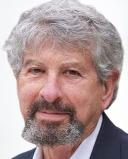Positive Psychology
The Tyranny of Hope
Sometimes, the more we hope, the less likely it will occur.
Posted March 24, 2024 Reviewed by Ray Parker
Key points
- While hope may offer temporary comfort, it can devastate one's ego in the long run.
- Knowledge is always superior to hope.
- You are better equipped to fulfill your wish when you get rid of hope.

Hope has prevented us from preparing for the “worst” since man developed the ability to think. Even fish have an advantage over us: They don’t hope; they act. We should be at least as smart as fish.
Some practitioners of positive psychology maintain that it is important for people in the midst of a transition (e.g., health to chronic illness) to have hope for a “good” outcome, even if the odds are against it. They believe that through hope, people will find it easier to adapt to a negative outcome if that’s what the future holds. But is hope the best way of preparing for the worst? I don’t think so.
What Is Hope?
Hope is a statistical concept more appropriate for a Las Vegas casino than as a strategy in your repertoire of wish-fulfilling arrows. When hoping for a specific outcome, implicit is the desire to be on the “good” side of a prediction—we want to roll a seven and not craps; we want all of the cancer cells to be removed and not just some. We want to be one of the 30% of restaurants that survive more than five years in San Francisco. Hope is all about the odds of something happening.
The Presence of Hope
We see hope in physicians’ statements, such as “Let’s hope for the best,” when they dodge survival questions patients ask. Baseball overflows with examples of hope, as evidenced by some players making the sign of the cross and looking to heaven when Shohei Ohtani takes the mound. And even though I write about the tyranny of hope, I packed my “lucky” Einstein cartoon T-shirt for a fishing trip to Hawaii.
There is nothing wrong with hope; I’m as guilty of it as those I chastise. The only caveat is that hope should be considered a superstition, such as not stepping on a sidewalk crack or believing a ratty T-shirt is the lucky charm for catching fish.
Hope may cushion life’s uncertainties, similar to how salve temporarily relieves an itch. But anti-itch ointment will not cure eczema, and hope may be more hurtful than helpful. So, if you eliminate hope as a lubricant for getting through life’s difficulties, what’s left? What can give you the edge on getting to the right side of the equation?
Substitutes for Hope
The uncertainties of health, politics, and life contain all the muck necessary for nurturing hope. We can hope for a compassionate government, lasting relationships, and a long life. We can wait for each to happen without our help and face the same odds of being fleeced by professional poker players in Las Vegas. Or you can change the odds by dumping hope and substituting knowledge, action, and acceptance.
Knowledge
There is an old saying that “knowledge is power.” It’s a golden rule when it comes to hope. I had a client who presented with the early signs of Alzheimer’s. He was adamant that he did not want to know if he had it, saying that knowing he would get Alzheimer’s would make the “normal” time he had left unbearable. Another client showing similar signs of dementia wanted a definitive diagnosis so he and his family could prepare for the worst.
Both clients developed Alzheimer’s. The first client and his family struggled for seven years with the consequences of dementia until his death. The second client and his family had five years to prepare. While knowledge did not make the journey pleasant, it did make it easier. There is an ancient saying, “You can’t pave an entire road that is full of thorns, but you can wear a good pair of sandals.” Knowledge, if nothing else, is the equivalent of a good pair of sandals.
Action
You may be able to affect the odds through action—sometimes not enough to be on the winning side—but enough to reduce the effects of being on the losing side. For years, it was thought that only drugs could slow the progression of Parkinson’s disease. However, research showed that exercise had a greater effect on the progression than some widely prescribed drugs.
People with Parkinson’s who chose not to exercise and hoped the disease would not progress experienced the predicted progression. But those who exercised stopped or slowed the progression and, in some cases, even reversed it.
Sometimes, even the most diligent action won’t produce the results you would like. Even if the worst happens, you’ll not have any “If I only I had done….” regrets.
Acceptance
Sometimes, despite knowledge and the best efforts, life still descends into a black hole. When that happens, accepting what is unchangeable can produce profound peace. The Alcoholics Anonymous prayer is one example of acceptance’s role: “God grant me the serenity to accept the things I cannot change, the courage to change the things I can, and the wisdom to know the difference.” The same thought has been said in many different ways in the ancient and present writings of Eastern religions. Acceptance is not giving up but understanding the difference between what you can change and what you cannot.
The Takeaway
Hope, if you must, but only a little. Take responsibility for your life rather than placing it on the shoulders of a celestial presence—she’s already too busy running the world. Think, do, and then, and only then—accept.
References
Goldberg, S. (2023) Preventing Senior Moments: How to Stay Alert Into Your 90s and Beyond. Lanham, MD: Roman & Littlefield.




